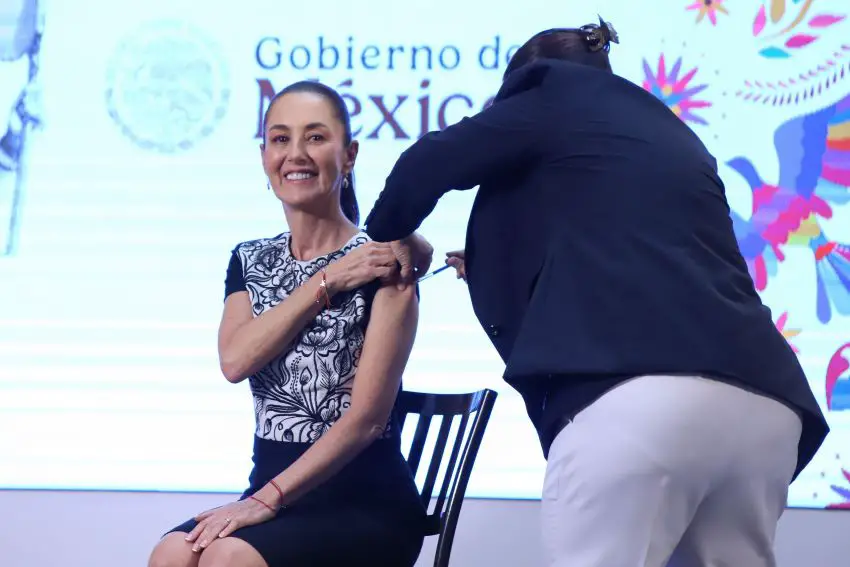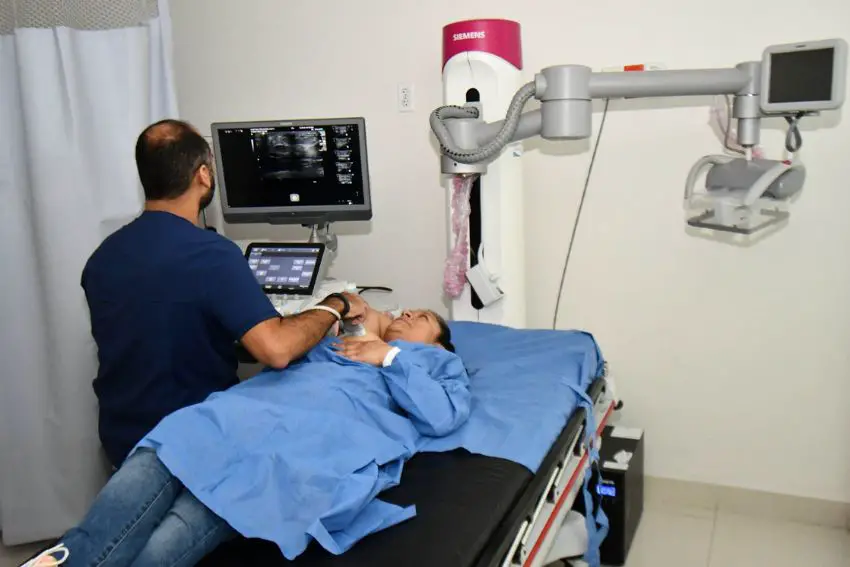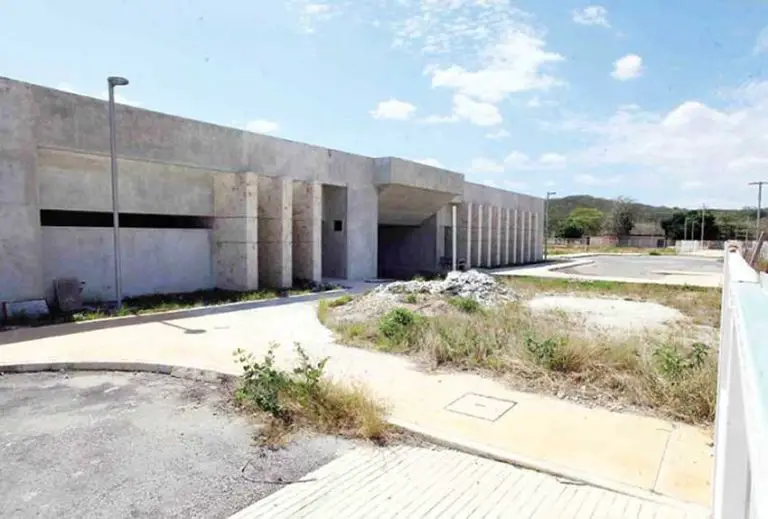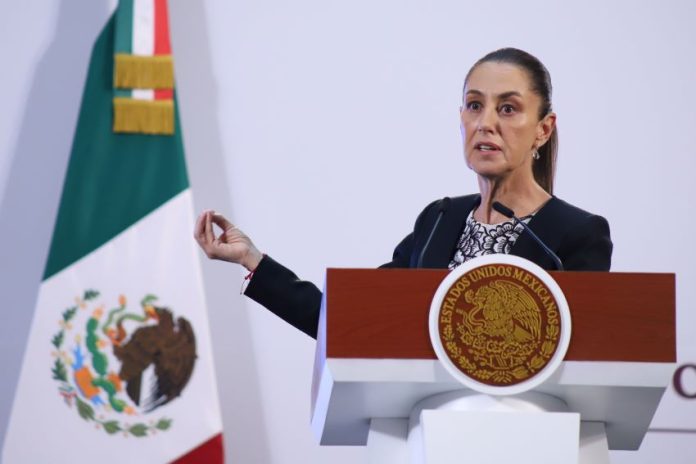Federal health authorities announced Tuesday the five strategic components of Claudia Sheinbaum’s new health plan, which seeks to improve the coverage, quality, and accessibility of medical services in Mexico.
According to Deputy Health Secretary Eduardo Clark García, the plan includes concrete actions to expand medical care to the entire population, focusing particularly on vulnerable sectors and regions with limited resources.

The plan includes the following goals:
1. Expansion of disease prevention and everyday health initiatives
Sheinbaum’s government plans to intensify vaccination campaigns, implement initiatives to tackle childhood and adult obesity, and improve the public health system’s monitoring of chronic diseases.
Last month, the Mexican government announced it will ban the sale of junk food — such as chips and sodas — in schools across the country beginning in March 2025 to eradicate childhood obesity and promote healthier eating habits among students.
2. Improving quality of care by reducing waiting times
In order to improve quality of care in Mexico’s state-run medical clinics and hospitals, Sheinbaum’s plan seeks to first maximize the potential of existing staff and infrastructure, achieved in part by strengthening the role of nursing staff.

The initiative will require the presence of clinical treatment and surgical equipment in all of Mexico’s 282 rural hospitals to guarantee continuous care for populations in isolated communities 24 hours a day, 365 days a year. This is currently not always possible, as hospitals in such communities often lack full-time doctors, especially specialists and surgeons, and also sometimes don’t have advanced treatment, diagnostic and surgical equipment on site, forcing patients to go to larger population centers for specialized care.
3. Expanding the IMSS-Bienestar program for all citizens not in Mexico’s social security system
The IMSS-Bienestar (National Mexican Institute of Social Security and Wellbeing) institute will become the healthcare source for all Mexicans who don’t qualify for enrollment in the Mexican Institute of Social Security (IMSS) or the State Workers’ Social Security Institute (ISSTE) or the other smaller patchwork of similar institutions for state institutions like the military and Pemex.
Sheinbaum’s plan aims to ensure adequate free medicines for use in IMSS-Bienestar facilities as well as the rehabilitation of Mexico’s government-run hospital infrastructure — including the completion of dozens of IMSS hospitals that went under construction during the administration of former president Enrique Peña Nieto (2012–2018) but were never finished.

The latter project was initiated by Sheinbaum’s predecessor, Andrés Manuel López Obrador, who also modernized more than 500 existing hospitals and clinics operated by ISSTE by the end of his six-year term in October.
Sheinbaum’s plan will create a Doctors of Wellbeing program, which will put together interdisciplinary medical teams to provide comprehensive and timely care in high-demand areas and in rural areas. To encourage participation by medical personnel, the government will offer monthly salaries of 39,000-43,000 pesos and monthly bonuses of 16,000 pesos, as well as financial and logistical support for transportation to rural hospitals, lodging and professional development.
4. Improve the supply of medicines and supplies in state-run facilities
Another frequent complaint about the government-run healthcare system all across Mexico is shortages of medicine and medical supplies. In October, the federal government announced it would allocate 130 billion pesos (US $6.4 billion) to purchase these items for 2025 and 2026 under a newly transparent and efficient system that Clark said would guarantee that state-run hospitals and clinics have what they need to treat patients.
Distribution is set to begin in March 2025.
5. Modernization and integration of Mexico’s public healthcare system
With this initiative, the government seeks to enhance the quality of medical care by eventually allowing people enrolled in one of Mexico’s government-run healthcare institutions to visit their nearest public healthcare facility, regardless of whether they are enrolled in the IMSS, ISSTE or IMSS-Bienestar program.
IMSS director Zoé Robredo said that this new policy will promote the use of digital records in public healthcare facilities. Currently, 53.7 million public healthcare participants in Mexico have a digital record, which allows patient care details to be shared across various institutions.
With reports from La Jornada and El Economista
